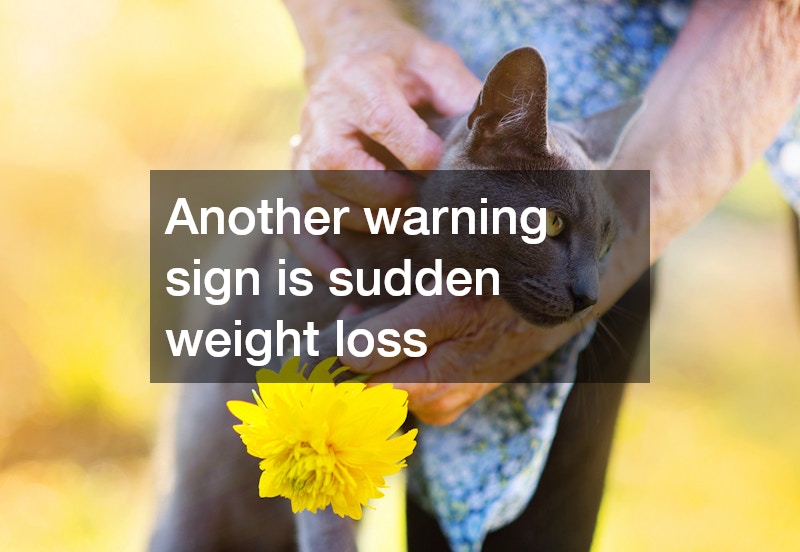Cats are known for their independence, but this can make it difficult to know when something is seriously wrong. Unlike dogs, who often show obvious signs of distress, cats may hide symptoms until their condition becomes critical. Recognizing when your cat needs immediate attention can be lifesaving. In many cases, pet urgent care is the fastest and most effective way to address these emergencies. Here are some key signs that your cat may require urgent care.
One of the most obvious signs that your cat needs pet urgent care is difficulty breathing. Cats are masters at hiding pain and discomfort, but labored breathing, rapid panting, or wheezing is never normal. If your cat is struggling to breathe, it could indicate a serious respiratory issue, heart problem, or severe allergic reaction. Delaying treatment in such situations can be life-threatening, making pet urgent care essential.
Persistent vomiting or diarrhea is another red flag. Occasional vomiting can happen for various reasons, such as eating too quickly, but repeated vomiting or diarrhea can lead to dehydration and signal underlying health issues. Blood in the vomit or stool is especially alarming and should prompt a visit to pet urgent care immediately. Cats are sensitive to dehydration, and what may start as a minor issue can escalate rapidly without prompt intervention.
A sudden loss of appetite or refusal to eat for more than 24 hours is also concerning. Cats are creatures of habit and generally maintain a consistent eating schedule. Loss of appetite can indicate illnesses ranging from dental problems to kidney disease or gastrointestinal issues. Since cats can quickly develop hepatic lipidosis, a serious liver condition, pet urgent care may be necessary to prevent complications.
Changes in behavior are another sign your cat may need urgent care. Lethargy, hiding, or uncharacteristic aggression can all indicate underlying health problems. If your normally playful cat suddenly becomes withdrawn or irritable, it’s important to monitor closely. Sometimes behavioral changes are the only early sign of illness, and timely evaluation at a pet urgent care facility can make a significant difference.
Injuries should also prompt immediate attention. Cats are curious and agile, but accidents happen. Falls, fights with other animals, or being hit by a vehicle can cause internal injuries that are not always visible. Limping, swelling, or sudden inability to move normally are signs that your cat needs urgent evaluation. Even if injuries appear minor, a veterinarian at pet urgent care can assess for fractures, internal bleeding, or other serious conditions.
Seizures or sudden collapses are unmistakable signs that your cat requires immediate care. Seizures may be caused by neurological disorders, toxins, or metabolic imbalances, all of which require prompt treatment. If your cat experiences a seizure, do not attempt to treat it at home. Contact a pet urgent care facility immediately to ensure your cat receives proper care and monitoring.
Urination problems can also indicate the need for urgent care. Straining to urinate, blood in the urine, or frequent trips to the litter box may signal urinary blockages or infections, particularly in male cats. Urinary blockages are medical emergencies that can quickly become fatal if not treated promptly. Pet urgent care can provide the immediate attention and treatment needed to prevent serious complications.
Another warning sign is sudden weight loss or swelling in the abdomen. While gradual weight changes can be normal, rapid changes are concerning. Swelling, bloating, or a hard abdomen may indicate organ issues, tumors, or fluid buildup, all of which require prompt evaluation by a professional. Pet urgent care facilities are equipped to perform the tests and provide the interventions necessary for such emergencies.
Lastly, any signs of poisoning or ingestion of harmful substances require immediate attention. Cats are curious and may consume plants, chemicals, or human foods that are toxic to them. Vomiting, drooling, tremors, or unsteady movements can indicate poisoning, and waiting could be fatal. Pet urgent care centers are prepared to administer treatments like activated charcoal, IV fluids, and medications to counteract toxins effectively.
Cats are skilled at hiding illness, making it essential for owners to recognize subtle warning signs. Difficulty breathing, persistent vomiting or diarrhea, loss of appetite, behavioral changes, injuries, seizures, urination problems, sudden weight changes, and possible poisoning are all clear indicators that your cat may require immediate attention. When these signs appear, seeking prompt care at a pet urgent care facility can make the difference between recovery and serious complications. Being vigilant and acting quickly ensures that your cat receives the medical attention they need when it matters most.




